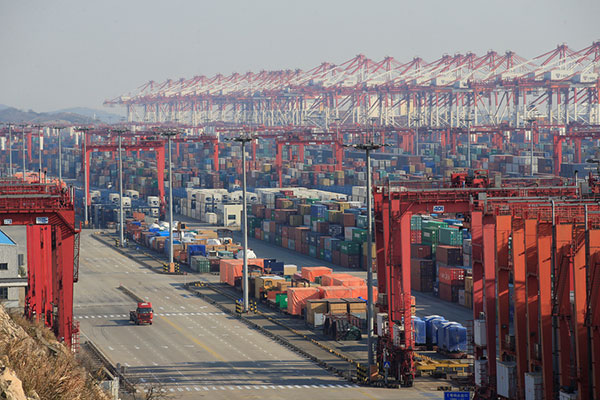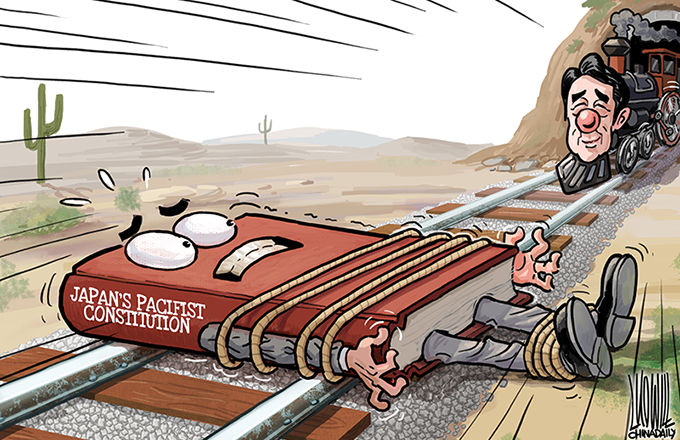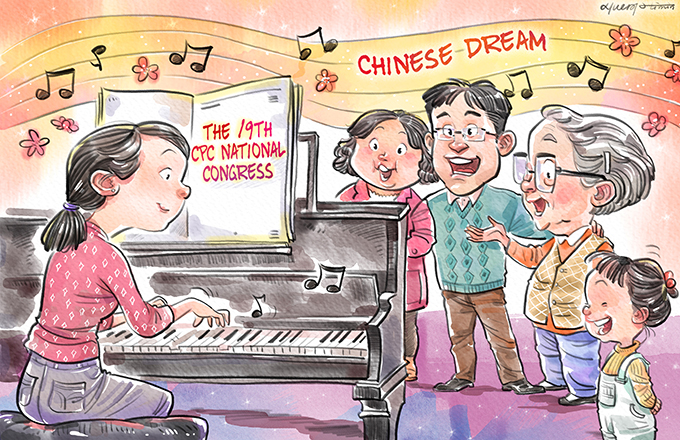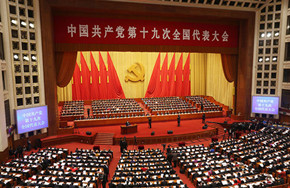Free trade ports will help to push the envelope of reforms
 |
|
Containers are seen at Yangshan Deep Water Port, part of the Shanghai Free Trade Zone, in Shanghai, Feb 13, 2017. [Photo/Agencies] |
IN THE REPORT he delivered at the 19th National Congress of the Communist Party of China in Beijing on Oct 18, General Secretary of the CPC Central Committee Xi Jinping pointed out that the government should give pilot free trade zones more autonomy to carry out reforms and the country should explore the possibility of establishing free trade ports. Beijing News comments:
It can now be expected that a number of free trade ports are on the horizon. Shanghai, Zhejiang and Guangdong, all pilot FTZs, are reportedly actively researching the feasibility of establishing free trade ports.
A free trade port refers to an entire port area in a country's territory that is considered to be outside the country's customs boundaries. Enterprises thus enjoy the freedom to store, exhibit, dissemble, refit and process their goods in these areas.
It is anticipated that the construction of free trade ports will stimulate local governments to take the initiative to promote trade, attract investment and make breakthroughs in institutional reforms. The successful experience, reform and practices that prove effective in these free trade ports can be used elsewhere in the country.
It is a conventional practice in China's reform and opening-up efforts to encourage some places to blaze a trail first, as a way to control the potential risks, and then when it proves successful use the lessons learned elsewhere.
Shenzhen, a special economic zone set up in 1980 in South China's Guangdong province, is a case in point, and it has made an indelible contribution to the market economy reform nationwide.
In fact five places-Shenzhen, Zhuhai, Shantou, Xiamen and Hainan-were earmarked as SEZs in the 1980s. But only Shenzhen finally distinguished itself.
China now has 11 pilot FTZs. The construction of free trade ports will trigger a new round of competition among the FTZs, which is conducive to motivating these places to try their best to push the envelope of institutional reforms.
- China working on building free trade ports
- Cross-border free trade zone to be upgraded soon
- Free trade commitment paramount for New Zealand
- On free trade, a meeting of minds
- Xi'an and Dubai ally to promote free trade
- China's Hong Kong, ASEAN conclude Free Trade Agreement negotiations
- Nation open to further free-trade deals





















